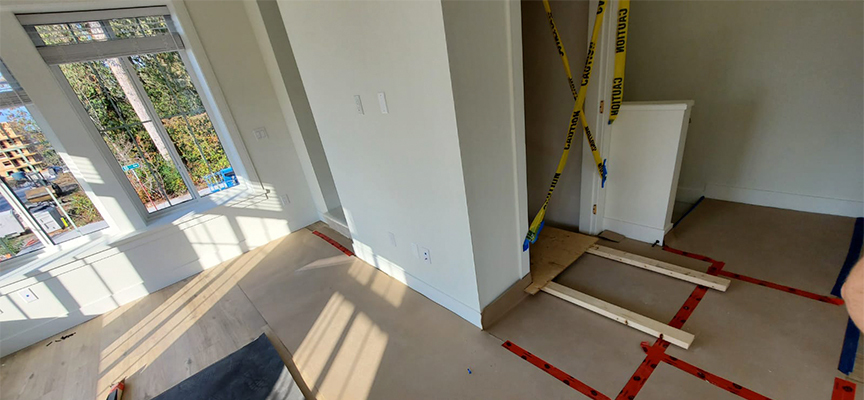
Innovative systems are in high demand in Vancouver, a beautiful city with green areas; unique products such as residential elevators are considered indispensable amenities that make a house more useful and valuable.
This comprehensive article will contain all the information a homeowner in Vancouver might need about residential elevators, including the types of elevators available, how they are installed, and the costs associated with the process.
We will also delve into the benefits of home elevators, including their impact on accessibility, property value, and overall quality of life.
Understanding Residential Elevators
Residential Elevators And Its Classification
Types of residential elevators also exist, including various elevator models that conform to specific features and environments within residential homes. In Vancouver, the most common types include:
- Hydraulic Elevators: These elevators use hydraulic fluid to hoist up and lower the car down. They are widespread in homes with little shaft space, which is common in tiny homes.
- Traction Elevators: Traction elevators, which use steel cables and counterweights, are suitable for many stories, offer higher velocities, and have minimal vibrations.
- Screw Elevators: Screw elevators are space-optimized, using a rotating screw and nut and are best suited for homes with little vertical shaft space.
Benefits Of Home Elevators
Installing a residential elevator in your Vancouver home can offer numerous advantages, including:
- Enhanced Accessibility: Home elevators allow people with disabilities or a certain degree of mobility impairment to move around the house by offering easy access to each floor.
- Increased Convenience: You’ll no longer have to climb stairs to get to your bedrooms, laundry room, or any other part of your house. A home elevator gives your home an aesthetic look and makes life easier for everyone living there.
- Improved Property Value: It has been established that properties with this feature cost more than those without it. This may be a plus if you are thinking of disposing of the property in the future.
Accessibility Standards
For the above reasons, learning present laws and code requirements regarding residential elevators in Vancouver is equally essential.
These standards guarantee that elevators are developed and installed to accommodate disabled individuals.
However, the BC Building Code (BCB) sets laws on the use of lifts nationwide, and it is conceivable that Vancouver has enacted its regulations or recommendations regarding residents’ lifts.
Local building ordinances or a certified elevator contractor, like EuroBuild Construction, should be contacted concerning the existing regulations.
Factors To Consider For Installation
Home Size And Layout
Whether a resident of Vancouver can have a residential elevator depends on the size and design of the house.
Key considerations include:
- Existing Structure: When planning to install an elevator, consider how strong your home’s foundation, walls, and roof are to contain one. A structural engineer can consider this potential when determining your home’s admissibility.
- Available Space: Learn how large a shaft is required and whether there is sufficient room in the house for it and the elevator’s operation.
- Architectural Style: Consider the architectural style of your home and how an elevator can make it look organic.
Building Codes And Permits
It is imperative to understand that local authorities must obtain consent before a residential elevator is implemented in Vancouver.
These requirements may differ depending, for instance, on the elevator’s category and the location of the intended installation.
The following permits are typically required:
- Building Permit: This permit allows for the construction of the elevator shaft and mechanical room, among other things.
- Electrical Permit: Required for wiring and electrical connections associated with the elevator.
- Mechanical Permit: Guarantees a mechanical confirmation of these guidelines and standards.
Residential Elevator Installation Process
Process #1: Preparation
The installation of a residential elevator in Vancouver also consists of several stages to be successful. These steps typically include:
- Site Assessment: It is advisable to engage a qualified contractor to evaluate your home, find suitable locations for the elevator shaft, and consider any other problems.
- Structural Analysis: A structural engineer will assess the foundation, walls, and roof of any home on which you intend to install the elevator to establish its carrying capacity.
- Utility Planning: Negotiate with public utilities to determine electricity needs and make appointments to order changes in the electrical networks.
Process #2: Construction
When all the preparations have been made, the installation part comes in. This typically involves the following steps:
- Shaft Creation: The contractor will paint the elevator shaft where cuttings penetrating the floors and walls may be made.
- Equipment Installation: The elevator car, counterweights, and all other mechanical installations are enclosed within the shaft.
- Wiring and Controls: Four electrical wires and control systems control the elevator’s operation.
Process #3: Testing And Inspection
After that, a general check and examination of the mounted equipment is made to guarantee the elevator’s safety and compliance with the code. This may include:
- Functional Testing: Exercising the elevator control to stop and start, become level or come to an emergency halt.
- Safety Inspections: Gauging safety gadgets, including emergency stops, alarms and overload protection.
- Code Compliance: Ensuring the installation complies with the relevant building standards and requirements.
Our Approach To Elevator Installation
We at EuroBuild Construction are prominent in offering excellent residential elevator installation services in Vancouver. Our experienced team of professionals enforces strict operational procedures that eliminate any inconvenience. The initial step is to assess your property to establish the right elevator kind and placement.
Experts’ technicians also perform the installation, and they undertake the fabrication of the shafts and the other equipment, as well as the testing of the machines. Our principles include safety, quality, and customers in our services. Call us today to set up an appointment and learn more about how we at Eurobuild Construction can transform your Vancouver home.

